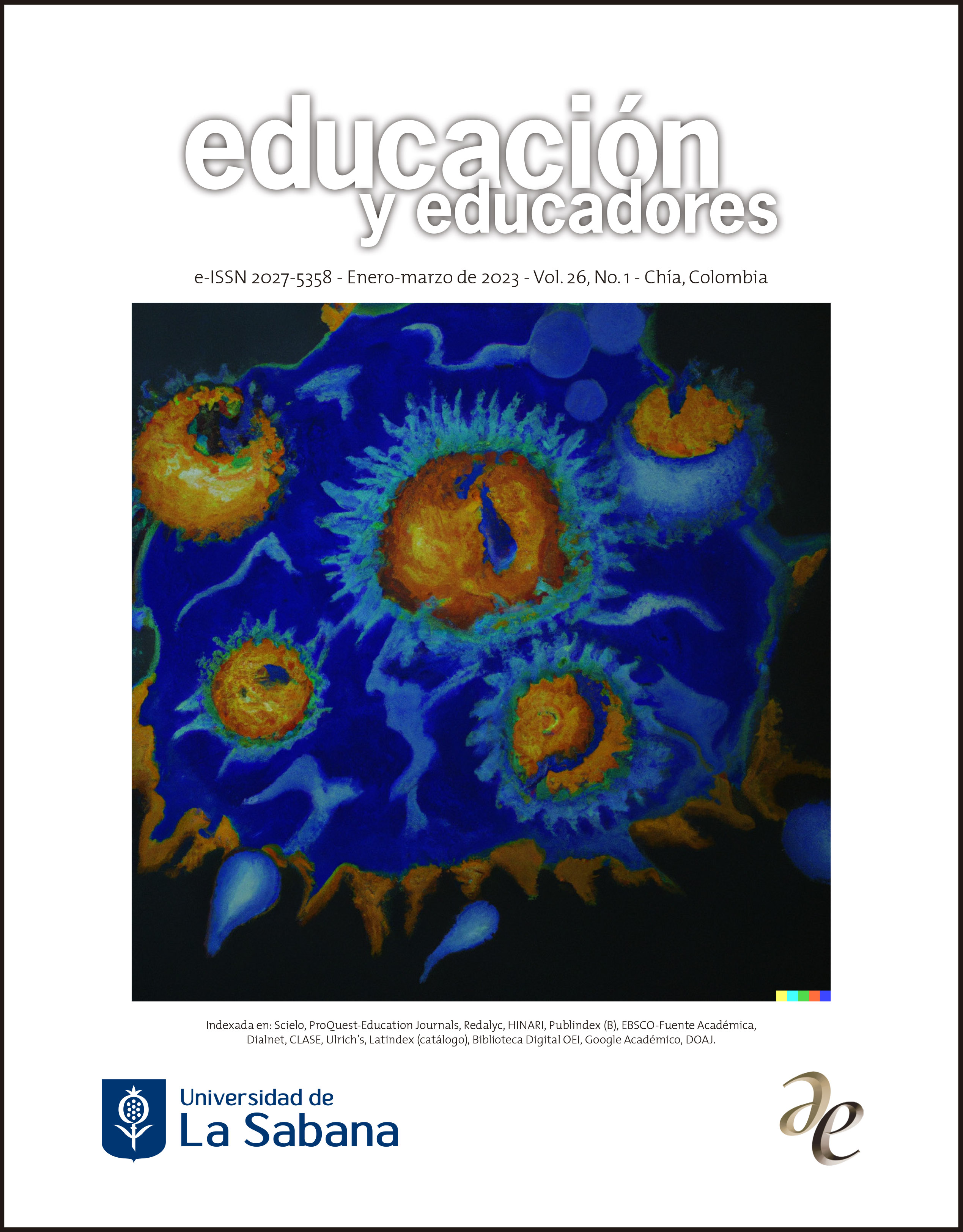Theoretical Approach to the Social Phenomenon of Home Education in Colombia
DOI:
https://doi.org/10.5294/edu.2023.26.1.4Keywords:
Family education, informal education, homeschooling, educational theory, pedagogical researchAbstract
Educating children at home is not a new educational practice. However, from the 1960s to the present day, it has become increasingly common worldwide, making it an educational movement with a significant social impact. Thus, this article introduces a theoretical approach to homeschooling in Colombia based on its epistemic understanding as a ‘social-educational phenomenon.’ To achieve this objective, three phases of theoretical reflection will be presented that include national and international bibliographic sources and that essentially seek to argue: (1) that there are at least three theoretical approaches to home education or homeschooling from the 1960s to the present day; namely Deschooling, Homeschooling 1.0, and Homeschooling 2.0, (2) that it is possible to characterize the category “homeschooling” epistemically as a social-educational phenomenon, and (3) that there are at least five significant kinds of homeschooling educational experiences in Colombia. The study concludes that given the scarcity of research studies around the mentioned social-educational phenomenon, there is still a need for a rigorous, systematic, and academic approach to the subject in the national territory.
Downloads
References
Álvarez de Sotomayor, I. D. (2019). Popper y el homeschooling: Inspiración de una educación alternativa. Dilemata, 29, 7-20. https://www.dilemata.net/revista/index.php/dilemata/article/view/412000267
Asamblea General de la ONU (1948). Declaración Universal de los Derechos Humanos. [Edición ilustrada]. https://www.un.org/es/documents/udhr/UDHR_booklet_SP_web.pdf
Cabo González, C. (2010). El homeschooling en España: descripción y análisis del fenómeno. [Tesis doctoral] Universidad de Oviedo. https://www.tesisenred.net/bitstream/handle/10803/94200/UOV00100TCCG.pdf
Canal Caracol (2021). Menonitas en Colombia: así vive la misteriosa comunidad religiosa en los Llanos Orientales. En Los informantes. [Programa TV] 20 de agosto.
Chomsky, N. y Macedo, D. (2012). La (des)educación. Crítica. https://anarkobiblioteka3.files.wordpress.com/2016/08/la_des-educacic3b3n_-_noam_chomsky.pdf
Christian, D. L. (2011). Crear una vida juntos: herramientas prácticas para formar ecoaldeas y comunidades intencionales. Cauac/Crimentales.
Dickerson, A. (2019). John Holt: The philosophy of unschooling. Springer. https://doi.org/10.1007/978-3-030-18726-2
Ferrière, Ad. (1928). Pestalozzi y la nueva educación. Ministerio de Justicia e Instrucción Pública. Talleres gráficos de la Penintenciaría Nacional. http://www.bnm.me.gov.ar/giga1/documentos/EL003789.pdf
Gaither, M. (2017a). Homeschool. An American history. Palgrave Macmillan. https://doi.org/10.1057/978-1-349-95056-0
Gaither, M. (ed.) (2017b). The Wiley Handbook of home education. Wiley Blackwell. https://doi.org/10.1002/ 9781118926895
Educaciones alternativas - Alternativas a la Educación (s.f.). [Blog] https://educacionsinescuelacolombia.wordpress.com/
García López, E. F. y Poveda, D. A. (2007). Características de un Colegio Realmente Alternativo. https://educacionsinescuelacolombia.wordpress.com/2017/12/20/cra/
García López, E. F. (ed.) (2011). Un mundo por aprender: Educación sin Escuelas (ESE), Autoaprendizaje Colaborativo (AC) y Educación en Familia (EF); Congresos de 2009 y 2010 (1. ed). Universidad Nacional de Colombia. https://abacoenred.com/wp-content/uploads/2016/01/Un-mundo-por-aprender-García-Erwin-2010-pdf.pdf
Gardner, H. (2011). The unschooled mind: How children think and how schools should teach. Basic Books. https://public.ebookcentral.proquest.com/choice/publicfullrecord.aspx?p=665794
Goodman, P. (1976). La des-educación obligatoria. Fontanella. https://anarkobiblioteka3.files.wordpress.com/2016/08/la_des-educacic3b3n_obligatoria_-_paul_goodman.pdf
Holt, J. C. (2004). Instead of education: Ways to help people do things better. Sentient.
Holt, J. C. y Farenga, P. (2003). Teach your own: The John Holt Book of homeschooling. Perseus.
Holt, J. C. y Sheffer, S. (1990). Selected letters of John Holt. Ohio State University Press.
Illich, I. (1979). Deschooling society (reimpresión). Penguin.
Kingston, S. T. y Medlin, R. G. (2015). Empathy, Altruism, and moral development in home schooled children. Home School Researcher, 16(4), 1-10. https://files.eric.ed.gov/fulltext/ED573484.pdf
Kunzman, R. (2009). Write these laws on your children: Inside the world of conservative Christian homeschooling. Beacon Press. https://www.researchgate.net/publication/273895774_Write_These_Laws_on_Your_Children_Inside_the_World_of_Conservative_Christian_Homeschooling_by_Robert_Kunzman
Locke, J. (2012). Pensamientos sobre la educación. Akal.
Mason, C. y Recorded Books, I. (2013). The original home school series. Start Publishing LLC. https://rbdigital.oneclickdigital.com/
Maya, A. P. (2020). Si el colegio no existiera. El homeschooling o la libertad de educar en casa. Penguin Random House.
McKeon, C. (2007). A mixed methods nested analysis of homeschooling styles, instructional practices, and reading methodologies. Capella University. https://files.eric.ed.gov/fulltext/ED504128.pdf
Reese, W. J. (2010). History, education, and the schools. Palgrave Macmillan.
Reimer, E. R. (1973). La escuela ha muerto. Alternativas en materia de educación (2 ed.). Barral. https://pdfcoffee.com/everett-reimer-la-escuela-ha-muerto-4-pdf-free.html
Rothermel, P. (ed.) (2015). International perspectives on home education: Do we still need schools? Palgrave Macmillan.
Rousseau, J. J. (2000). El Emilio [1762]. elaleph.com. http://www.educ.ar
Taylor-Hough, D. (2010). Are all homeschooling methods created equal? Homeschooling Methods. https://files.eric.ed.gov/fulltext/ED510702.pdf
Published
How to Cite
Issue
Section
License
Copyright (c) 2023 Andrea Suárez Salazar, Andrés Klaus Runge-Peña

This work is licensed under a Creative Commons Attribution-NonCommercial-NoDerivatives 4.0 International License.
1. Proposed Policy for Journals That Offer Open Access
Authors who publish with this journal agree to the following terms:
-
This journal and its papers are published with the Creative Commons License CC BY 4.0 DEED Atribución 4.0 Internacional. You are free to share copy and redistribute the material in any medium or format if you: give appropriate credit, provide a link to the license, and indicate if changes were made; don’t use our material for commercial purposes; don’t remix, transform, or build upon the material.










